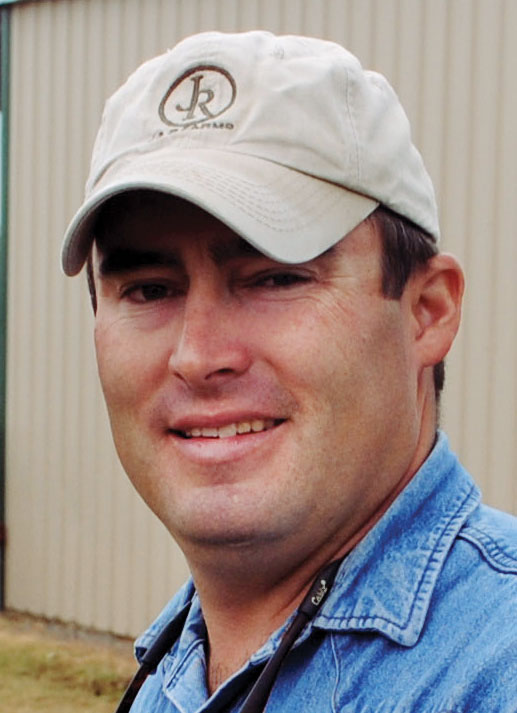 Lesia Foresee of Lead Hill, Ark., gives new meaning to the old saying, “A woman’s work is never done.” In addition to her full-time job in the office at the Tyson Feed Mill in Bergman, Ark., Lesia raises meat goats and feeder cattle with her parents on their farm in northern Boone County. Her nights and weekends are spent caring for over 125 head of goats and 70 head of feeder calves. “We usually plan big projects for the weekend. Right now, we are mostly cleaning up brush,” said Lesia. When she does have spare time, Lesia enjoys trail riding one of her two horses, a Missouri Foxtrotter and a Quarter Horse.
Lesia Foresee of Lead Hill, Ark., gives new meaning to the old saying, “A woman’s work is never done.” In addition to her full-time job in the office at the Tyson Feed Mill in Bergman, Ark., Lesia raises meat goats and feeder cattle with her parents on their farm in northern Boone County. Her nights and weekends are spent caring for over 125 head of goats and 70 head of feeder calves. “We usually plan big projects for the weekend. Right now, we are mostly cleaning up brush,” said Lesia. When she does have spare time, Lesia enjoys trail riding one of her two horses, a Missouri Foxtrotter and a Quarter Horse.
Lesia’s knowledge of goats comes from a lifetime of experience. Her grandparents raised Angora goats and dairy goats. “They sent some of the fleece to Texas and made their own quilt batting with the rest,” said Lesia. Her parents have had goats on the farm for a number of years. “There have always been goats around here,” said Lesia.
March 15 was Lesia’s target date for her 90 nanny goats to begin kidding. She keeps the nannies in a small pasture close to her grandmother’s house during this time. This makes it easy for her and her father to check for new arrivals. “The nannies and kids are kept in the small field until all the kids have been born and settled. They are fed hay and corn, and are supplemented with molasses tubs during kidding season. We worm the nannies after they have kidded and then turn them out to the big pastures,” said Lesia. The nannies and kids are constantly spot checked for health issues that should arise.
There are 40 wethers, as well as a couple of billies kept in a pasture close to Lesia’s house. “I call them my working crew. They are mostly used to clear up brush,” said Lesia. There are also 15 replacement nannies that are kept separate from the other goats. “We don’t breed our nannies until they are turning two years old,” said Lesia.
The Foresees raise their own replacement nannies and buy registered billies. They have specific characteristics that they look for when choosing replacement stock. “We look for a wide chest width, meaty hams and a well-muscled body for the replacement billies. We look for nannies with a large, meaty looking frame, and my mother likes the nannies to be polled,” said Lesia.
Experience has helped Lesia come up with some helpful management techniques. “If a nanny has triplets, we always pull the third kid off. We want the nanny to be able to produce healthy kids. We have a friend who comes and gets the extra kid. She likes to mess with them. Also, I buy different colored tags for every year. I can glance at a nanny and see how old she is by the color of her tag,” said Lesia.
The Foresees market their goats at a sheep/goat sale in Highlandville, Mo. “We sell the biggest wethers in June, and in August we sell the rest of the wethers and any kids and nannies we are not keeping. I watch the market closely, but at selling time, when they need to go, we have to sell them because there is always more coming along,” said Lesia.
Lesia is pleased to see the increased popularity of goats and thinks it has made for a better market. She recommends the information put out by the U of A Cooperative Extension offices for some great goat advice. Lesia also has her own important piece of advice for any person thinking about having goats: “You can get in the goat business quick. Don’t overpopulate your land. You can buy four or five goats and have 20 head before you know it, but that is when you run into worm and feet problems.”
Stay on top of management, and you'll be successful, Lesia has shown.







